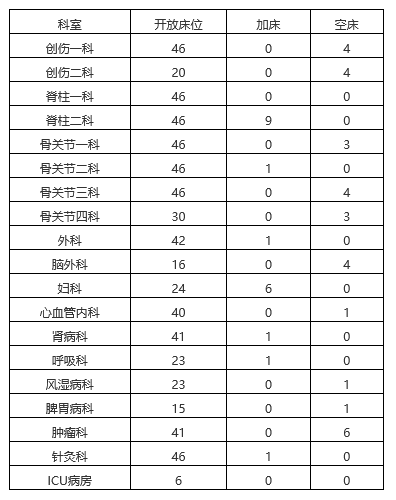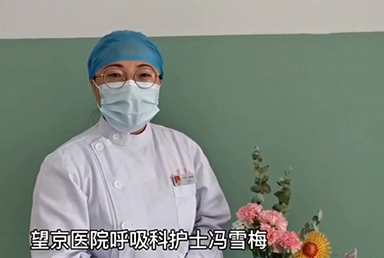赫尔辛基宣言
The World Medical Association, Inc
世界医学会
DECLARATION OF HELSINKI
Ethical Principles for Medical Research Involving Human Subjects
赫尔辛基宣言
涉及人体受试者的医学研究伦理原则
Adopted by the 18th WMA General Assembly, Helsinki, Finland, June 1964, and amended by the:
29th WMA General Assembly, Tokyo, Japan, October 1975
35th WMA General Assembly, Venice, Italy, October 1983
41st WMA General Assembly, Hong Kong, September 1989
48th WMA General Assembly, Somerset West, Republic of South Africa, October 1996
52nd WMA General Assembly, Edinburgh, Scotland, October 2000
53th WMA General Assembly, Washington, United States, October 2002
(Note of Clarification on paragraph 29 added)
55th WMA General Assembly, Tokyo, Japan, October 2004
(Note of Clarification on Paragraph 30 added)
WMA General Assembly, Seoul, Korea, October 2008
1964年6月第18届世界医学会大会,芬兰,赫尔辛基通过,修订于:
第29届世界医学会大会,日本,东京,1975年10月
第35届世界医学会大会,意大利,威尼斯,1983年10月
第41届世界医学会大会,香港,1989年9月
第48届世界医学会大会,南非共和国,西苏玛锡,1996年10月
第52届世界医学会大会,苏格兰,爱丁堡,2000年10月
第53届世界医学会大会,美国,华盛顿,2002年10月
(增加了对第29段落的解释说明)
第55届世界医学会大会,日本,东京,2004年10月
(增加了对第30段落的解释说明)
世界医学会大会,韩国,首尔,2008年10月
世界医学会赫尔辛基宣言
| A. INTRODUCTION | A.前言 | |
| 1. The World Medical Association (WMA) has developed the Declaration of Helsinki as a statement of ethical principles for medical research involving human subjects, including research on identifiable human material and data. The Declaration is intended to be read as a whole and each of its constituent paragraphs should not be applied without consideration of all other relevant paragraphs. | 1.世界医学会(WMA)制定了《赫尔辛基宣言》,是作为对涉及人体受试者的医学研究的伦理原则的一项声明,此研究还包括对可识别身份的人体材料和数据进行的研究。 《宣言》应整体阅读,其中任一段落的运用都应同时考虑到其他所有相关段落的内容。 | |
| 2. Although the Declaration is addressed primarily to physicians, the WMA encourages other participants in medical research involving human subjects to adopt these principles. | 2.尽管《宣言》主要针对医生,世界医学会鼓励参与涉及人体受试者的研究的其他相关人员采纳这些原则。 | |
| 3. It is the duty of the physician to promote and safeguard the health of patients, including those who are involved in medical research. The physician's knowledge and conscience are dedicated to the fulfilment of this duty. | 3.促进和维护患者的健康,包括那些参加医学研究的患者,是医生的职责。医生以知识和良知致力于完成该职责。 | |
| 4. The Declaration of Geneva of the WMA binds the physician with the words, “The health of my patient will be my first consideration,” and the International Code of Medical Ethics declares that, “A physician shall act in the patient's best interest when providing medical care.” | 4.世界医学会的《日内瓦宣言》用下列词语约束医生“患者的健康是我首先需要考虑的”。《国际医学伦理守则》宣告,“医生在提供医护时应从患者的最佳利益出发。” | |
| 5. Medical progress is based on research that ultimately must include studies involving human subjects. Populations that are underrepresented in medical research should be provided appropriate access to participation in research. | 5.医学进步以科学研究为基础,而研究最终必须涉及人体受试者。应使那些在医学研究中缺乏代表性的人群有机会参加研究。 | |
| 6. In medical research involving human subjects, the well-being of the individual research subject must take precedence over all other interests. | 6.在涉及人体受试者的研究中,个体研究受试者的福祉必须高于所有其他利益。 | |
| 7. The primary purpose of medical research involving human subjects is to understand the causes, development and effects of diseases and improve preventive, diagnostic and therapeutic interventions (methods, procedures and treatments). Even the best current interventions must be evaluated continually through research for their safety, effectiveness, efficiency, accessibility and quality. | 7.涉及人类受试者的医学研究的首要目的,是了解疾病的起因、发展和影响,并改进预防、诊断和治疗干预措施(方法、操作程序和治疗)。即使是当前最佳干预措施,也必须不断通过对其安全性、有效性、效率、可及性和质量进行研究,予以评估。 | |
| 8. In medical practice and in medical research, most interventions involve risks and burdens. | 8.在医学实践和医学研究中,大多干预措施具有风险,会造成负担。 | |
| 9. Medical research is subject to ethical standards that promote respect for all human subjects and protect their health and rights. Some research populations are particularly vulnerable and need special protection. These include those who cannot give or refuse consent for themselves and those who may be vulnerable to coercion or undue influence. | 9. 医学研究要遵循那些促进尊重人体受试者、保护他们的健康和权利的伦理标准。一些研究涉及的人群特别易受伤害,需要特别保护。这包括那些无能力自主决定同意或拒绝的人群、和可能受到强迫或不正当影响的人群。 | |
| 10. Physicians should consider the ethical, legal and regulatory norms and standards for research involving human subjects in their own countries as well as applicable international norms and standards. No national or international ethical, legal or regulatory requirement should reduce or eliminate any of the protections for research subjects set forth in this Declaration. | 10.医生不仅要考虑本国的、有关涉及人体受试者的研究的伦理、法律和法规条例标准,也要考虑适用的国际规范和标准。任何国家或国际的伦理、法律或法规要求不应减少或删除本宣言提出的对研究受试者的任一保护措施。 | |
| B. PRINCIPLES FOR ALL MEDICAL RESEARCH | B. 适用于所有医学研究的原则 | |
| 11. It is the duty of physicians who participate in medical research to protect the life, health, dignity, integrity, right to self-determination, privacy, and confidentiality of personal information of research subjects. | 11. 参与医学研究的医生有责任保护研究受试者的生命、健康、尊严、完整性、自我决定权、隐私和个人信息的保密。 | |
| 12. Medical research involving human subjects must conform to generally accepted scientific principles, be based on a thorough knowledge of the scientific literature, other relevant sources of information, and adequate laboratory and, as appropriate, animal experimentation. The welfare of animals used for research must be respected. | 12. 涉及人体受试者的研究必须符合公认的科学原则,并以对科学文献、其他相关资料、充分的实验室研究、适当的动物实验的充分了解为基础。实验动物的福利必须得到尊重。 | |
| 13. Appropriate caution must be exercised in the conduct of medical research that may harm the environment. | 13.开展有可能破坏环境的医学研究应予以适当的谨慎。 | |
| 14. The design and performance of each research study involving human subjects must be clearly described in a research protocol. The protocol should contain a statement of the ethical considerations involved and should indicate how the principles in this Declaration have been addressed. The protocol should include information regarding funding, sponsors, institutional affiliations, other potential conflicts of interest, incentives for subjects and provisions for treating and/or compensating subjects who are harmed as a consequence of participation in the research study. The protocol should describe arrangements for post-study access by study subjects to interventions identified as beneficial in the study or access to other appropriate care or benefits. | 14. 任何涉及人体受试者的研究,其设计和操作,必须在研究方案中明确描述。方案应陈述该研究涉及的伦理问题,简要说明如何体现《宣言》中的原则。研究方案应包括有关资金来源、资助者、机构隶属关系、其他潜在的利益冲突、对受试者的激励措施,以及对研究造成的伤害如何治疗和/或予以补偿的信息。研究方案应说明研究结束后,有关受试者获得经研究确定为有益的干预措施的安排,或得到其他适当的照护或益处。 | |
| 15. The research protocol must be submitted for consideration, comment, guidance and approval to a research ethics committee before the study begins. This committee must be independent of the researcher, the sponsor and any other undue influence. It must take into consideration the laws and regulations of the country or countries in which the research is to be performed as well as applicable international norms and standards but these must not be allowed to reduce or eliminate any of the protections for research subjects set forth in this Declaration. The committee must have the right to monitor ongoing studies. The researcher must provide monitoring information to the committee, especially information about any serious adverse events. No change to the protocol may be made without consideration and approval by the committee. | 15. 研究开始前,研究方案必须递交至研究伦理委员会,供其考虑、评论、指导和批准。该委员会必须独立于研究者、资助者和其他任何不当影响之外。委员会必须考虑本国和研究项目开展国的法律和法规、以及适用的国际规范和标准,但这些绝不允许减少或删除本宣言提出的对研究受试者的保护措施。委员会必须有权监督正在进行中的研究。研究人员必须向该委员会提供监督的信息,特别是关于严重不良事件的信息。未经该委员会的考虑和批准,不得修改研究方案。 | |
| 16. Medical research involving human subjects must be conducted only by individuals with the appropriate scientific training and qualifications. Research on patients or healthy volunteers requires the supervision of a competent and appropriately qualified physician or other health care professional. The responsibility for the protection of research subjects must always rest with the physician or other health care professional and never the research subjects, even though they have given consent. | 16.唯有受过适当科学培训和具备资格的人员方可开展涉及人体受试者的研究。针对患者或健康受试者的研究需要由一位胜任、并有资质的医生或其他卫生保健专业人员负责监督。保护研究受试者的责任必须始终在于医生和卫生保健专业人员,而不是研究受试者本身,即使先前他们已经给出同意。 | |
| 17. Medical research involving a disadvantaged or vulnerable population or community is only justified if the research is responsive to the health needs and priorities of this population or community and if there is a reasonable likelihood that this population or community stands to benefit from the results of the research. | 17.涉及处于不利地位或弱势人群的医学研究,唯有这项研究是针对该人群的健康需要且是此人群或社区优先关注的问题,并且有理由认为该人群可能从研究结果中获益时,方能认为这项研究是正当的。 | |
| 18. Every medical research study involving human subjects must be preceded by careful assessment of predictable risks and burdens to the individuals and communities involved in the research in comparison with foreseeable benefits to them and to other individuals or communities affected by the condition under investigation. | 18.每项涉及人体受试者的研究在实施前,必须对参加研究的受试个体和群体,就可预见的研究风险和负担,与带给他们及其他受到研究疾病状况影响的个体或群体的可见的益处对比,进行谨慎评估。 | |
| 19. Every clinical trial must be registered in a publicly accessible database before recruitment of the first subject. | 19.每项临床试验必须在招募第一个受试者前,在公众可及的数据库上注册登记。 | |
| 20. Physicians may not participate in a research study involving human subjects unless they are confident that the risks involved have been adequately assessed and can be satisfactorily managed. Physicians must immediately stop a study when the risks are found to outweigh the potential benefits or when there is conclusive proof of positive and beneficial results | 20.除非医生相信已对研究相关的风险进行了充分评估,并能满意地控制风险,否则不可以参与该涉及人体受试者的研究。一旦发现研究的风险大于潜在获益,或已获得了肯定和有益的研究结论时,医生必须立即停止该研究。 | |
| 21. Medical research involving human subjects may only be conducted if the importance of the objective outweighs the inherent risks and burdens to the research subjects. | 21.唯有研究目的之重要性超出受试者承担的研究内在的风险和负担时,涉及人体受试者的研究方可开展。 | |
| 22. Participation by competent individuals as subjects in medical research must be voluntary. Although it may be appropriate to consult family members or community leaders, no competent individual may be enrolled in a research study unless he or she freely agrees. | 22.有行为能力的个体作为受试者参加医学研究必须是自愿的。尽管同其家人或社区负责人进行商议可能是合适的,除非他或她自由表达同意,否则不得将有行为能力的个体纳入研究中。 | |
| 23. Every precaution must be taken to protect the privacy of research subjects and the confidentiality of their personal information and to minimize the impact of the study on their physical, mental and social integrity. | 23.必须采取一切措施保护研究受试者的隐私和个人信息机密性,并使研究对他们的身体、精神和社会完整性造成的影响降低到最小。 | |
| 24. In medical research involving competent human subjects, each potential subject must be adequately informed of the aims, methods, sources of funding, any possible conflicts of interest, institutional affiliations of the researcher, the anticipated benefits and potential risks of the study and the discomfort it may entail, and any other relevant aspects of the study. The potential subject must be informed of the right to refuse to participate in the study or to withdraw consent to participate at any time without reprisal. Special attention should be given to the specific information needs of individual potential subjects as well as to the methods used to deliver the information. After ensuring that the potential subject has understood the information, the physician or another appropriately qualified individual must then seek the potential subject's freely-given informed consent, preferably in writing. If the consent cannot be expressed in writing, the non-written consent must be formally documented and witnessed. | 24.涉及有行为能力受试者的医学研究,每位潜在受试者必须被充分告知:研究目的、方法、资金来源、任何可能的利益冲突、研究人员的机构隶属关系、研究预期的获益和潜在的风险、研究可能造成的不适,以及任何其他相关方面的信息。潜在受试者必须被告知有拒绝参加研究或随时撤回同意退出研究而不会因此受到报复的权利。应特别关注个体潜在受试者对于特定信息的需求、以及传递信息的方式。在确保潜在研究受试者理解了告知信息后,医生或其他 适当的有资格的人员必须寻求其自主的知情同意,最好是书面形式。如果不能以书面形式表达同意,非书面同意必须被正式记录并有见证。 | |
| 25. For medical research using identifiable human material or data, physicians must normally seek consent for the collection, analysis, storage and/or reuse. There may be situations where consent would be impossible or impractical to obtain for such research or would pose a threat to the validity of the research. In such situations the research may be done only after consideration and approval of a research ethics committee. | 25. 对于使用可识别身份的人体材料或数据的医学研究,通常情况下,医生必须寻求受试者对采集、分析、存放和/或再次使用人体材料或数据的同意意见。可能存在这样的情况,对某些研究而言,获得受试者同意已不可能或不现实,或寻求同意会对研究的有效性造成威胁,在这样的情况下,唯有经研究伦理委员会考虑并批准后,研究方可进行。 | |
| 26. When seeking informed consent for participation in a research study the physician should be particularly cautious if the potential subject is in a dependent relationship with the physician or may consent under duress. In such situations the informed consent should be sought by an appropriately qualified individual who is completely independent of this relationship. | 26.在寻求参与研究项目的知情同意时,如果潜在受试者与医生有依赖关系,或可能会被迫表示同意,医生应特别谨慎。在这些情况下,应该由一个适当的有资格且完全独立于这种关系之外的人来寻求知情同意。 | |
| 27. For a potential research subject who is incompetent, the physician must seek informed consent from the legally authorized representative. These individuals must not be included in a research study that has no likelihood of benefit for them unless it is intended to promote the health of the population represented by the potential subject, the research cannot instead be performed with competent persons, and the research entails only minimal risk and minimal burden. | 27.对无行为能力的潜在受试者,医生必须寻求法定代理人的知情同意。上述潜在受试者绝不能被纳入到一个不可能带给他们益处的研究中,除非研究旨在促进该潜在受试者所代表的人群的健康,且研究不能以有行为能力的受试者代替进行,同时研究仅造成最小风险和负担。 | |
| 28. When a potential research subject who is deemed incompetent is able to give assent to decisions about participation in research, the physician must seek that assent in addition to the consent of the legally authorized representative. The potential subject's dissent should be respected. | 28.当一个被认为无行为能力的潜在受试者是能够做出同意参加研究的决定时,医生除了寻求法定代理人的同意之外,还必须寻求该受试者的同意。该潜在受试者做出的不同意意见应予以尊重。 | |
| 29. Research involving subjects who are physically or mentally incapable of giving consent, for example, unconscious patients, may be done only if the physical or mental condition that prevents giving informed consent is a necessary characteristic of the research population. In such circumstances the physician should seek informed consent from the legally authorized representative. If no such representative is available and if the research cannot be delayed, the study may proceed without informed consent provided that the specific reasons for involving subjects with a condition that renders them unable to give informed consent have been stated in the research protocol and the study has been approved by a research ethics committee. Consent to remain in the research should be obtained as soon as possible from the subject or a legally authorized representative. | 29.研究涉及因身体或精神状况而不能做出同意意见的受试者时,如丧失意识的患者,唯有在阻碍给出知情同意的身体或精神状况是该研究人群的一个必要特征时,研究方可开展。这种情况下,医生应寻求法定代理人的知情同意。如果无法联系到法定代理人,而且研究不能延误时,研究可以在没有获得知情同意的情况下进行 -- 前提是,研究方案中陈述了需要纳入处于不能做出同意意见情况下的受试者的特殊理由,且该研究已得到了伦理委员会的批准。研究者应尽早地从受试者或法定代理人处获得继续参与研究的同意意见。 | |
| 30. Authors, editors and publishers all have ethical obligations with regard to the publication of the results of research. Authors have a duty to make publicly available the results of their research on human subjects and are accountable for the completeness and accuracy of their reports. They should adhere to accepted guidelines for ethical reporting. Negative and inconclusive as well as positive results should be published or otherwise made publicly available. Sources of funding, institutional affiliations and conflicts of interest should be declared in the publication. Reports of research not in accordance with the principles of this Declaration should not be accepted for publication. | 30.对研究结果的出版,作者、编辑和出版方均负有伦理义务。作者有责任公开涉及人体受试者的研究的成果,并对其报告的完整性和准确性负责。他们应遵守关于符合伦理的报告的被认可的指南。阴性的或未得出结论的研究结果应同阳性结果一样发表或公开,或通过其他途径使公众可以得到。在发表物上应声明资金来源、机构隶属以及利益冲突等。未能遵守本《宣言》原则的研究的报告,不应被接受发表。 | |
| C. ADDITIONAL PRINCIPLES FOR MEDICAL RESEARCH COMBINED WITH MEDICAL CARE | C.有关与医疗照护相结合的医学研究的补充原则 | |
| 31. The physician may combine medical research with medical care only to the extent that the research is justified by its potential preventive, diagnostic or therapeutic value and if the physician has good reason to believe that participation in the research study will not adversely affect the health of the patients who serve as research subjects. | 31.只有当研究潜在的预防、诊断或治疗价值被证明正当,而且医生有良好的理由相信患者作为受试者参加研究对其健康不会造成不良影响时,医生才可以将医学研究与医疗照护相结合。 | |
| 32. The benefits, risks, burdens and effectiveness of a new intervention must be tested against those of the best current proven intervention, except in the following circumstances: · -The use of placebo, or no treatment, is acceptable in studies where no current proven intervention exists; or -Where for compelling and scientifically sound methodological reasons the use of placebo is necessary to determine the efficacy or safety of an intervention and the patients who receive placebo or no treatment will not be subject to any risk of serious or irreversible harm. Extreme care must be taken to avoid abuse of this option. | 32.一种新的干预措施的益处、风险、负担和有效性,必须与当前被证明的最佳干预措施进行对照试验,但下述情况除外: - 在当前不存在被证明有效的干预措施的情况下,使用安慰剂或不予治疗是可以被接受的;或 - 出于令人信服的以及科学合理的方法学上的理由,使用安慰剂是确定一种干预措施的有效性或安全性所必须的,而且使用安慰剂或不予治疗不会使患者遭受任何严重的风险或不可逆的伤害。为避免此种选择被滥用,须极其谨慎。 | |
| 33. At the conclusion of the study, patients entered into the study are entitled to be informed about the outcome of the study and to share any benefits that result from it, for example, access to interventions identified as beneficial in the study or to other appropriate care or benefits. | 33.研究结束时,参加研究的患者有权得知研究的结果并分享由此产生的任何益处,例如,有权获得研究证实的有益的干预措施或其他适当的照护或益处。 | |
| 34. The physician must fully inform the patient which aspects of the care are related to the research. The refusal of a patient to participate in a study or the patient's decision to withdraw from the study must never interfere with the patient-physician relationship. | 34.医生必须完全告知患者治疗的哪些方面与研究有关。绝不能因患者拒绝参加研究或决定退出研究而妨碍医患关系。 | |
| 35. In the treatment of a patient, where proven interventions do not exist or have been ineffective, the physician, after seeking expert advice, with informed consent from the patient or a legally authorized representative, may use an unproven intervention if in the physician's judgement it offers hope of saving life, re-establishing health or alleviating suffering. Where possible, this intervention should be made the object of research, designed to evaluate its safety and efficacy. In all cases, new information should be recorded and, where appropriate, made publicly available. | 35.在患者治疗过程中,若尚没有被证明有效的干预措施,或干预措施已经无效,医生在寻求专家意见后,并得到患者或法定代理人的知情同意后,如果根据自己的判断,该干预措施有望挽救生命、重获健康或减少痛苦,那么医生可以采用未被证实的干预措施。只要可能,该干预措施应作为一个研究目的,并进行研究设计来评估其安全性和有效性。无论何种情况,新信息都应被记录下来,适当情况下,将其公开。 | |
上一篇: 我院派出两名骨科专家赴甘肃地震灾区
下一篇: 体检部搬迁信息





















